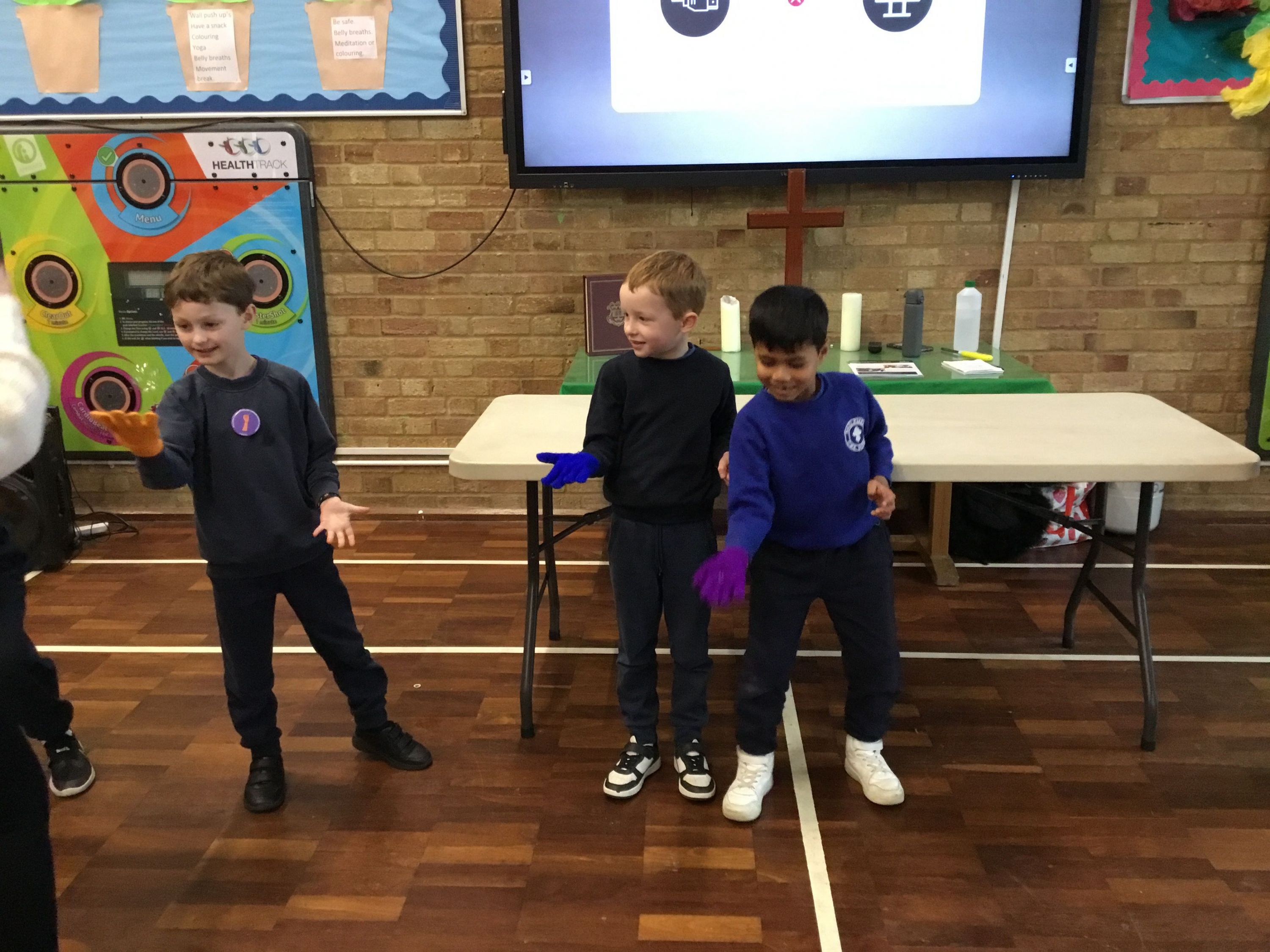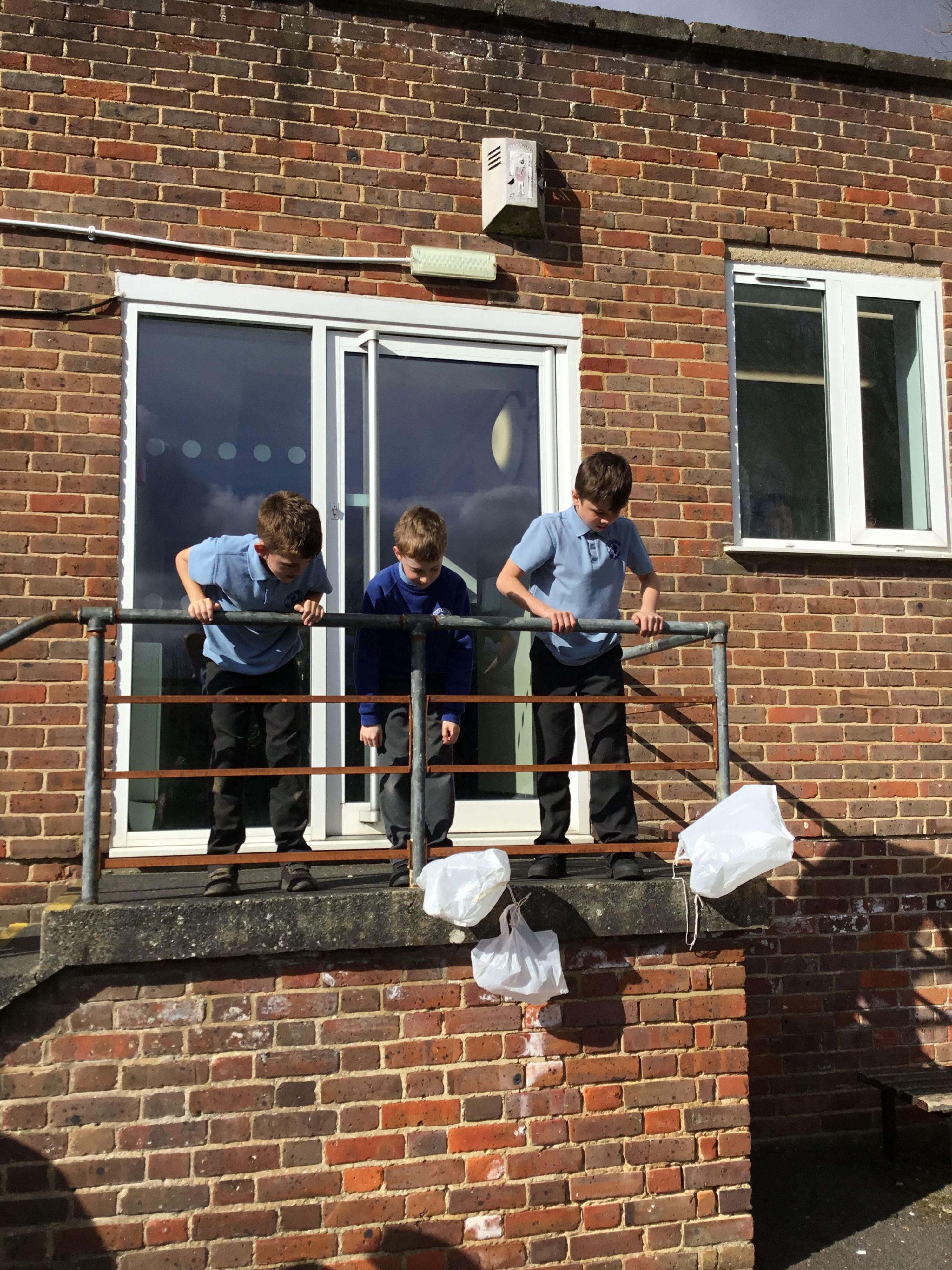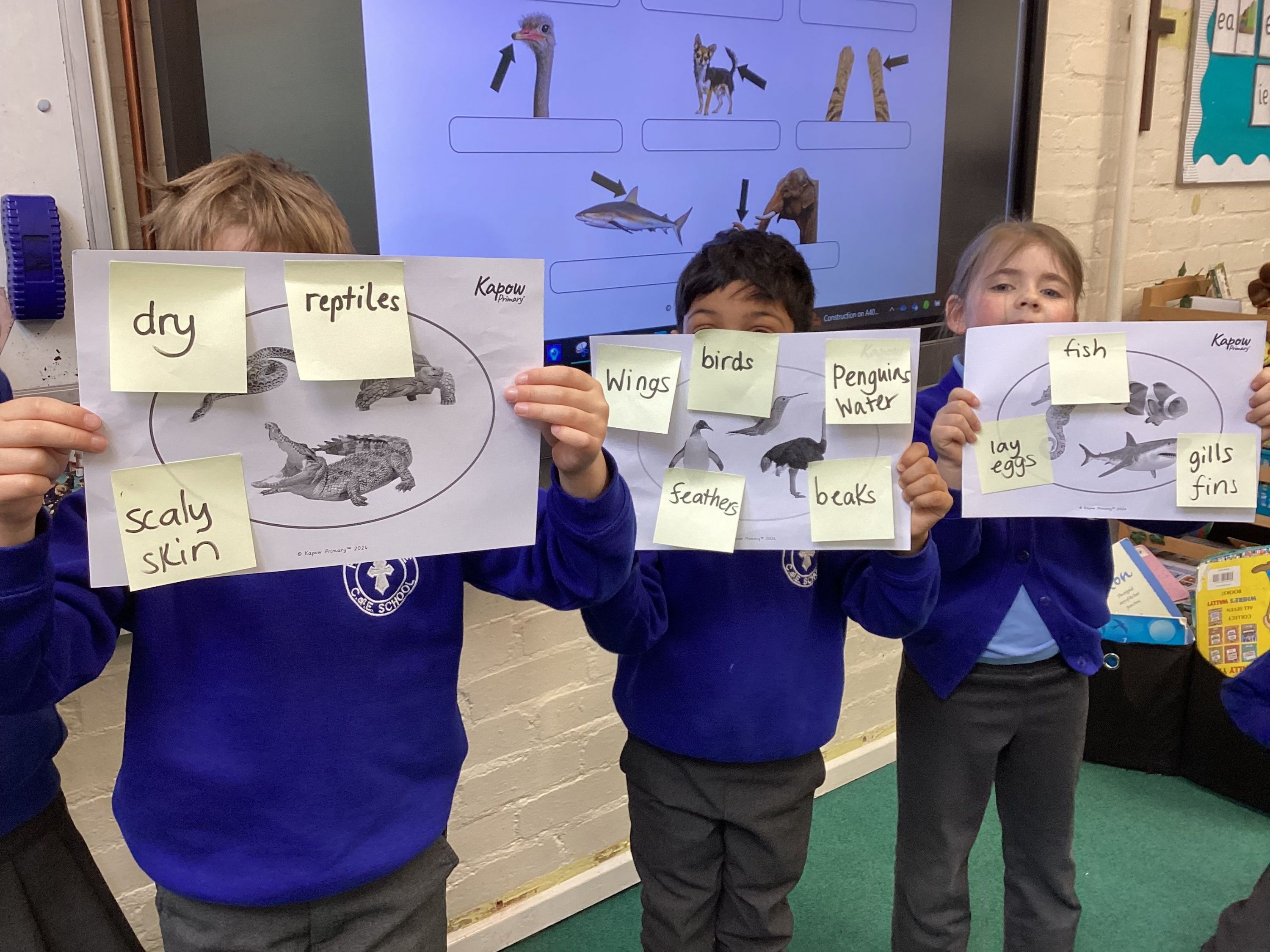Science
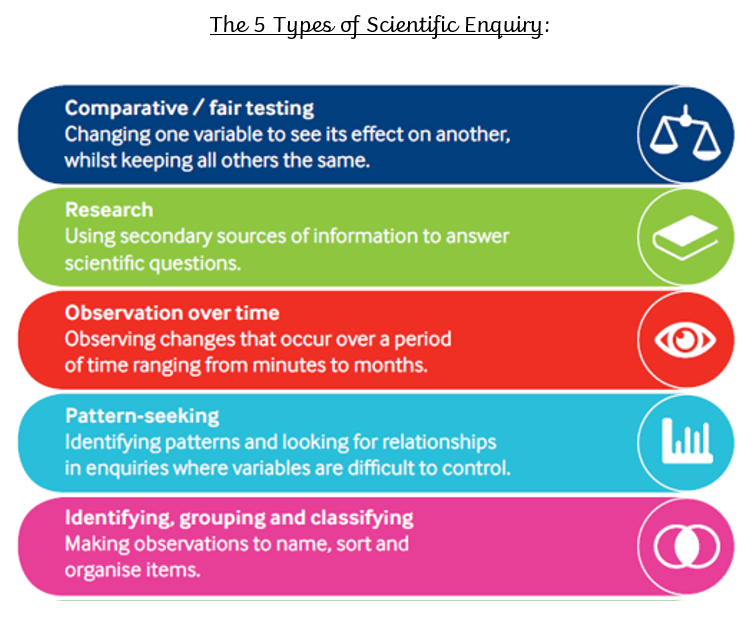
SUBJECT INTENTION
At Hazlemere C of E school, we follow the Kapow Primary’s Science curriculum which aims to develop a sense of excitement and curiosity about natural phenomena and an understanding of how the scientific community contributes to the past, present and future. The curriculum aims for pupils to develop a complex knowledge of biology, chemistry and physics but also adopt a broad range of skills in working scientifically and beyond. The scheme of work is inclusive and meaningful, so all pupils may experience the joy of science and make associations between their science learning and their lives outside the classroom. Studying science allows pupils to appreciate how new knowledge and skills can be fundamental to solving arising global challenges. The curriculum aims to encourage critical thinking and empower pupils to question the hows and whys of the world around them.
The scheme encourages:
● A strong focus on developing knowledge alongside scientific skills across biology, chemistry and physics.
● Curiosity and excitement about familiar and unknown observations.
● Challenging misconceptions and demystifying truths.
● Continuous progression by building on practical and investigative skills across all units.
● Critical thinking, with the ability to ask perceptive questions and explain and analyse evidence.
● Development of scientific literacy using wide-ranging, specialist vocabulary.
Kapow Primary’s Science scheme of work supports pupils in meeting the Early Learning Goals for Understanding the world (The Natural world) and the end of key stage attainment targets set out in the National curriculum.
SUBJECT IMPLEMENTATION
Curriculum:
To meet the aims of the National curriculum for science and in response to the Ofsted research review: science,
Kapow has identified the following key strands:
● Scientific knowledge and understanding of: biology: living organisms and vital processes; chemistry: matter and its properties and physics: how the world we live in ‘works’.
● Working scientifically: processes and methods of science to answer questions about the world around us.
● Science in action: uses and implications of science in the past, present and for the future.
Kapow Primary’s Science scheme is a spiral curriculum, with essential knowledge and skills revisited with increasing complexity, allowing pupils to revise and build on their previous learning. A range of engaging recall activities promotes frequent pupil reflection on prior learning, ensuring new learning is approached with confidence. The Science in action strand is interwoven throughout the scheme to make the concepts and skills relevant to pupils and inspiring for future application. Cross-curricular links are included throughout each unit, allowing pupils to make connections and apply their science skills to other areas of learning.
Each unit is based on one of the key science disciplines: biology, chemistry and physics. The National curriculum content has been grouped into six key areas of science to show progression throughout the school:
Plants; Animals, including humans; Living things and habitats; Materials; Energy; Forces and Earth and space.
Pupils explore knowledge and conceptual understanding through engaging activities and an introduction to relevant, specialist vocabulary. As suggested in Ofsted research review: science (April 2021), the Working scientifically skills are integrated with conceptual understanding rather than taught discretely to provide frequent but relevant opportunities for developing scientific enquiry skills. The scheme utilises practical activities that aid in the progression of individual skills and provide opportunities for full investigations.
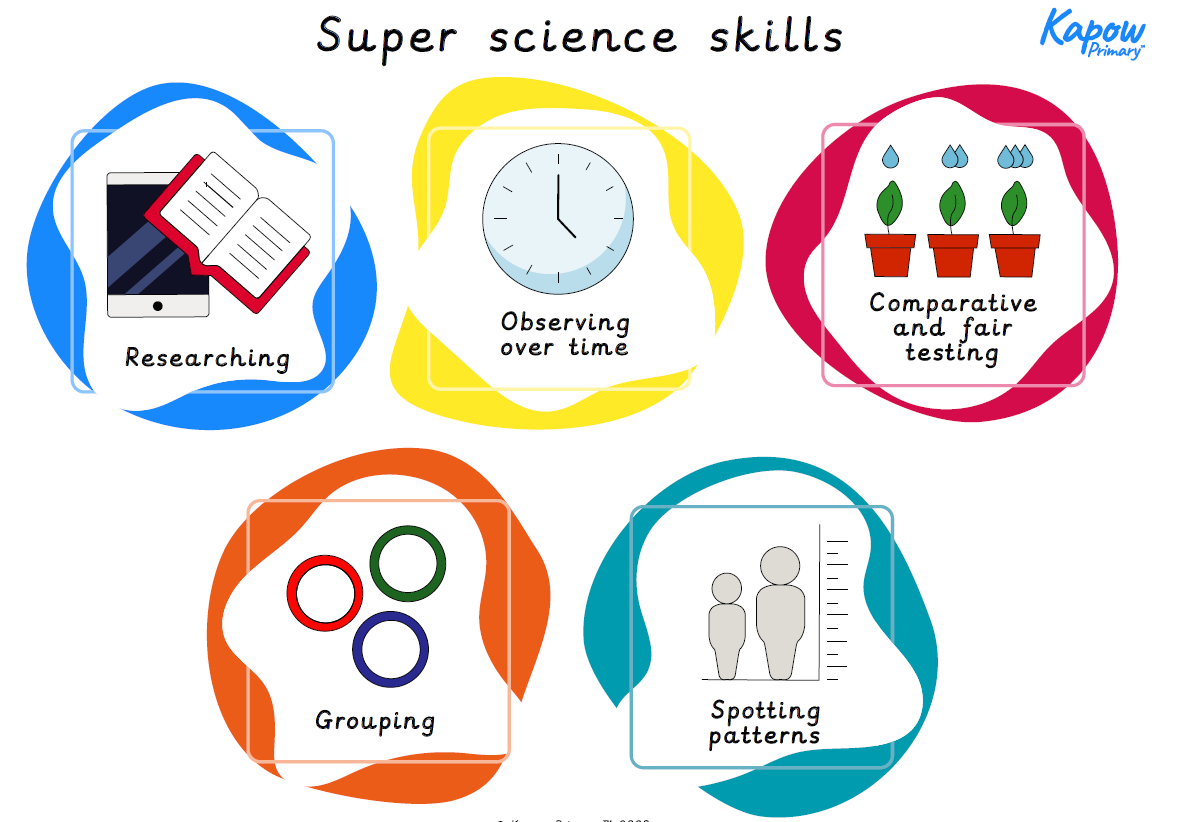
Science Week 2025
The theme of this year’s Science Week was ‘change and adapt’. The whole school completed a science activity each day and lots of fun and excitement was felt throughout the school.
On Wednesday 12th and Thursday 13th of March, we enjoyed our annual visit from the Science Professors, kindly funded by The Friends. Each class, from EYFS through to Year 6, attended an assembly and then had an hour’s workshop with our science professor for the day, Lauren. The children were fascinated when Lauren was able to push a wooden skewer all the way through a balloon and out the other side without it popping! In their workshops, the children used a colour spinner and coloured disks to learn about how animals can camouflage and how different colours can be made to ‘disappear’. The most exciting experiment, according to lots of the children, was the fire tornado. They were surprised by how high the flame went and the staff were all pleased that there was a fire extinguisher nearby!
All classes in KS1 and 2 also joined in with NFU Education’s Live Farm sessions. I think the most exciting session was attended online by KS2, when a calf was born while live streaming! This seems to have become a yearly occurrence. Lots of classes also watched a live lesson, provided by the BBC, where they learnt all about how astronauts eat, exercise, sleep and even use the toilet in space!
Another great Science Week was had by all, and we are already looking forward to next year’s events.
